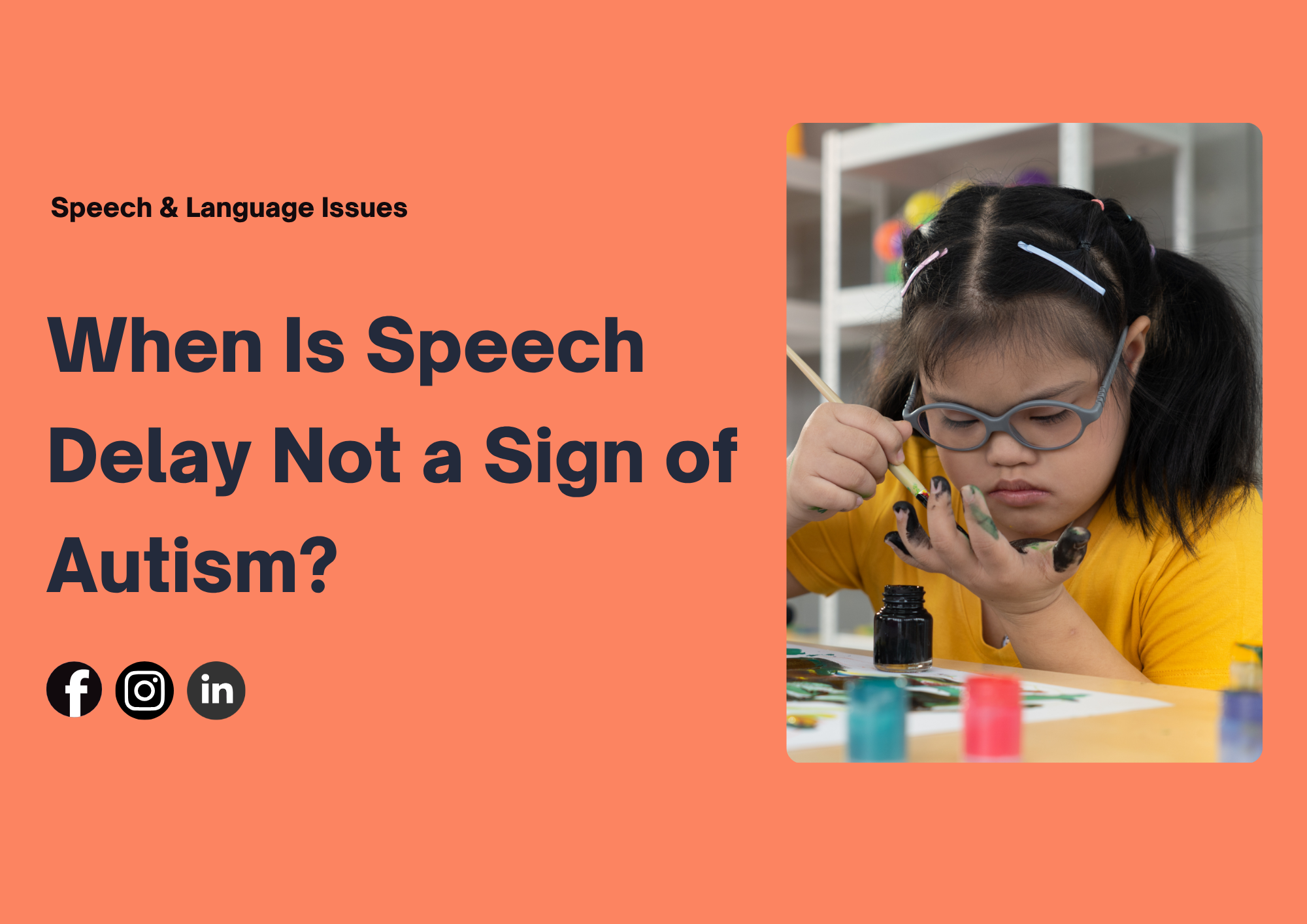
Understanding the Differences—and the Hope That Comes With Them
As a parent, you’ve likely asked yourself:
“Why isn’t my child talking yet?”
“Is this a speech delay—or is it autism?”
“Should I be worried?”
We get it. It’s a scary place to be, filled with uncertainty and late-night Googling. But here’s something important: speech delay does not always mean autism. Many children with delayed speech go on to develop completely typically—with the right support.
At Neuronurture Kids, we work with families just like yours—parents looking for answers, clarity, and an action plan backed by science and empathy.
The Brain Basics: Speech Delay vs. Autism
What Is a Speech Delay?
A speech delay means your child is developing spoken language more slowly than expected for their age. Common causes include:
- Developmental delay
- Hearing loss
- Environmental influences (e.g., more screen time, low verbal engagement)
- Family history of late talking
What Is Autism?
Autism Spectrum Disorder (ASD) involves differences in:
- Communication (verbal and nonverbal)
- Social interaction
- Repetitive behaviors and sensory responses
Analogy: Traffic Delay
- Speech delay = mild roadblock — slower but same path
- Autism = alternate route — different journey, same goal
Signs Your Child Likely Doesn’t Have Autism
Signs that your child’s speech delay is likely not autism:
- Makes eye contact
- Points or gestures to communicate
- Responds to name
- Engages in pretend play (e.g., feeding a doll)
- Enjoys social games like peekaboo
- Copies sounds or facial expressions
What the Research Says
- 2021 review in Pediatrics International confirms that not all late talkers are autistic—especially if socially engaged.
- Rescorla (2009): 70% of “late talkers” catch up by age 5 without an ASD diagnosis.
- Tager‑Flusberg & Kasari (2013): Language delay must be considered alongside social and behavioral patterns.
Neuroplasticity: The Brain Can Rewire
Before age 5, your child’s brain is like wet cement—quick to form new paths. With interactive play, therapy, and rich language input, development can accelerate—even after a delay.
Ask Yourself:
- Does my child try to connect—even without words?
- Do they understand basic instructions?
- Do they laugh, engage, and show curiosity?
If you’re saying “yes,” it’s more likely speech delay than autism. Still, an early evaluation is wise.
What Can I Do Right Now?
- Track speech and social responses using a simple journal
- Read aloud with big, colorful books
- Describe everyday routines using rich vocabulary
- Sing nursery rhymes and encourage mimicry
- Schedule a hearing test to rule out issues
- Book a speech-language evaluation
Analogy: Speech Is a Garden
- Some flowers bloom early, others late
- With sunlight (talk), water (therapy), and care (consistency), growth happens
How Neuronurture Kids Helps
We offer play-based, evidence-informed online speech therapy designed for young learners:
- Brain-based strategies using neuroplasticity
- Goal-focused therapy with trackable milestones
- Parent coaching and home strategy plans
- Motor-based speech development
- Progress monitoring and support
Final Thoughts
Not every speech delay is autism. But every delay deserves care.
Early support = better outcomes. Your child’s voice matters—and will emerge, stronger and brighter.
Ready to Take the Next Step?
Book a Free 10‑Minute ConsultationOr reach us via WhatsApp: +91 74117 49796
Explore our free parent resources: Toolkits, checklists, and interactive home activities.
Don’t “wait and see.” Instead—observe, act, and empower.